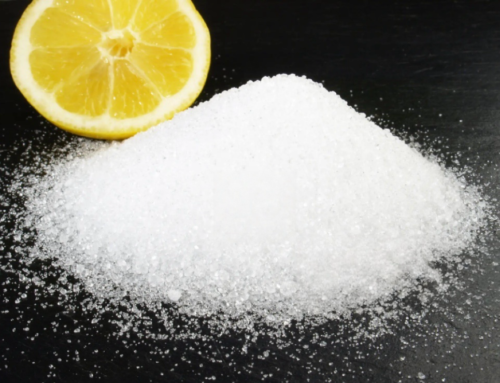In the realm of food safety and additives, anhydrous ammonium acetate has gained attention for its potential applications. This is a comprehensive blog discussing the use of anhydrous ammonium acetate in the food industry. This blog will delve into its properties, possible applications, regulatory considerations, and safety aspects. So, let’s explore the wonders of anhydrous ammonium acetate!
We will go through the order of the questions below:
- What is Anhydrous Ammonium Acetate?
- What are the Applications of Anhydrous Ammonium Acetate?
- Is it Safe?
Join us with the first question.
What is Anhydrous Ammonium Acetate?
Anhydrous ammonium acetate is a chemical compound composed of ammonium cations (NH4+) and acetate anions (C2H3O2-). It is the anhydrous (water-free) form of ammonium acetate. This compound is known for its ability to act as a pH buffer, providing stability and regulating acidity levels in various products and processes.
For specifications check the form below:
| Chemical Formula | CH3COONH4 |
| E-code | E264 |
| CAS No. | 631-61-8 |
| HS Code | 29152910 |
| Molecular Weight | 77.0825 g/mol |
| Appearance | White crystalline solid |
| Purity | ≧97% |
| Solubility | Soluble in water |
| Odor | Odorless |
| pH (50g/L,25℃) | Typically around 6.5-7.5 |
| Density | Approximately 1.17 g/cm3 |
| Melting Point | Approximately 114-116 °C (237-241 °F) |
| Boiling Point | Decomposes above 250 °C (482 °F) |
Let’s move to the next question.
What are the Applications of Anhydrous Ammonium Acetate?
Applications in Food Industry
 Meat processing: Anhydrous ammonium acetate can be used in meat processing. It acts as a flavor enhancer, providing a tangy taste and improving the overall mouthfeel. Additionally, it can serve as an antimicrobial agent, extending the shelf life of meat products.
Meat processing: Anhydrous ammonium acetate can be used in meat processing. It acts as a flavor enhancer, providing a tangy taste and improving the overall mouthfeel. Additionally, it can serve as an antimicrobial agent, extending the shelf life of meat products.
Preservation of fruits and vegetables: Anhydrous ammonium acetate is sometimes used as a preservative in fruits and vegetables to extend their shelf life by inhibiting microbial growth.
Cheese production: Anhydrous ammonium acetate is utilized in some cheese-making processes as a coagulant, aiding in the separation of curds and whey.
Baking: Anhydrous ammonium acetate can be used as a leavening agent in baked goods. When added to the dough, it reacts with alkaline substances, producing carbon dioxide gas that helps the dough rise. This chemical reaction contributes to the soft and fluffy texture of bread and pastries.
Pickling: Anhydrous ammonium acetate is used in pickling processes for vegetables, sauces, and condiments. It provides acidity, improves preservation, and enhances flavor.
Egg-based products: Anhydrous ammonium acetate is employed in the production of egg-based products such as cakes, cookies, and pastries. It acts as a leavening agent, aiding in the rise and texture of baked goods.
Vinegar production: Anhydrous ammonium acetate is one of the raw materials used in vinegar production. Through fermentation and chemical reactions involving anhydrous ammonium acetate, edible vinegar can be obtained.
Applications in Pharmaceutical Industry
Drug stability: Anhydrous ammonium acetate is often used as a stabilizer for drugs in pharmaceuticals. It can help maintain the stability of the drug against breakdown, degradation, or inactivation. Ammonium acetate can improve the stability of the drug by adjusting the pH value of the drug, buffering, or other chemical reactions.
Buffer: Anhydrous ammonium acetate can be used as a buffer in pharmaceutical processes. It can adjust the pH value of pharmaceutical preparations and keep them in an ideal range to ensure the stability and biological activity of drugs. In some formulations, ammonium acetate may be used with other buffers such as sodium acetate or phosphate to allow more precise pH adjustment.
Formulation optimization: Anhydrous ammonium acetate can optimize and improve drug properties in drug formulations. It may be used as a solubility enhancer to help improve the solubility and bioavailability of drugs. In addition, ammonium acetate can also be used as a building block of complex compounds in some specific formulations.
Applications in Other Industry
Water treatment: Anhydrous ammonium acetate can be used in the water treatment process. It can be used as a passivating agent to remove oxides and pollutants from metal surfaces, thus improving water quality and the purification process.
Agriculture: Anhydrous ammonium acetate can be used as a nitrogen source in fertilizers. It provides plants with readily available nitrogen, aiding in their growth and development. It is often used in agricultural settings where quick nitrogen supplementation is required.
Is it Safe?
Yes, when used within approved limits, Anhydrous ammonium acetate is generally considered safe for consumption. It has been evaluated and approved by regulatory authorities such as the United States Food and Drug Administration (FDA) and the European Food Safety Authority (EFSA).
In conclusion, anhydrous ammonium acetate serves various purposes in the food industry. From regulating pH levels and enhancing flavors to acting as a leavening agent, its versatile applications make it a valuable ingredient in certain food products and processing techniques. However, it is crucial to prioritize safety by adhering to regulatory guidelines and implementing Good Manufacturing Practices when dealing with anhydrous ammonium acetate. If you’re interested in our anhydrous ammonium acetate, please feel free to contact us at [email protected]. We’re pleased to serve you 24/7.




